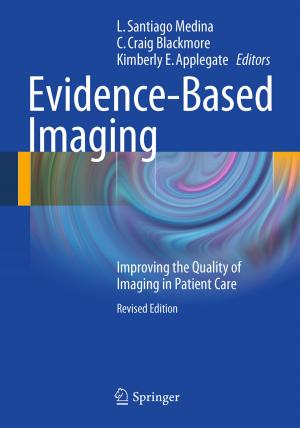Handbook of Health Decision Science
Nonfiction, Health & Well Being, Medical, Reference, Public Health, Psychology, Applied Psychology| Author: | ISBN: | 9781493934867 | |
| Publisher: | Springer New York | Publication: | September 26, 2016 |
| Imprint: | Springer | Language: | English |
| Author: | |
| ISBN: | 9781493934867 |
| Publisher: | Springer New York |
| Publication: | September 26, 2016 |
| Imprint: | Springer |
| Language: | English |
This comprehensive reference delves into the complex process of medical decision making—both the nuts-and-bolts access and insurance issues that guide choices and the cognitive and affective factors that can make patients decide against their best interests. Wide-ranging coverage offers a robust evidence base for understanding decision making across the lifespan, among family members, in the context of evolving healthcare systems, and in the face of life-changing diagnosis. The section on applied decision making reviews the effectiveness of decision-making tools in healthcare, featuring real-world examples and guidelines for tailored communications with patients. Throughout, contributors spotlight the practical importance of the field and the pressing need to strengthen health decision-making skills on both sides of the clinician/client dyad.
Among the Handbook’s topics:
- From laboratory to clinic and back: connecting neuroeconomic and clinical mea
sures of decision-making dysfunctions.
Strategies to promote the maintenance of behavior change: moving from theoretical principles to practices.
Shared decision making and the patient-provider relationship.
Overcoming the many pitfalls of communicating risk.
- Evidence-based medicine and decision-making policy.
- The internet, social media, and health decision making.
The Handbook of Health Decision Science will interest a wide span of professionals, among them health and clinical psychologists, behavioral researchers, health policymakers, and sociologists.
This comprehensive reference delves into the complex process of medical decision making—both the nuts-and-bolts access and insurance issues that guide choices and the cognitive and affective factors that can make patients decide against their best interests. Wide-ranging coverage offers a robust evidence base for understanding decision making across the lifespan, among family members, in the context of evolving healthcare systems, and in the face of life-changing diagnosis. The section on applied decision making reviews the effectiveness of decision-making tools in healthcare, featuring real-world examples and guidelines for tailored communications with patients. Throughout, contributors spotlight the practical importance of the field and the pressing need to strengthen health decision-making skills on both sides of the clinician/client dyad.
Among the Handbook’s topics:
- From laboratory to clinic and back: connecting neuroeconomic and clinical mea
sures of decision-making dysfunctions.
Strategies to promote the maintenance of behavior change: moving from theoretical principles to practices.
Shared decision making and the patient-provider relationship.
Overcoming the many pitfalls of communicating risk.
- Evidence-based medicine and decision-making policy.
- The internet, social media, and health decision making.
The Handbook of Health Decision Science will interest a wide span of professionals, among them health and clinical psychologists, behavioral researchers, health policymakers, and sociologists.















